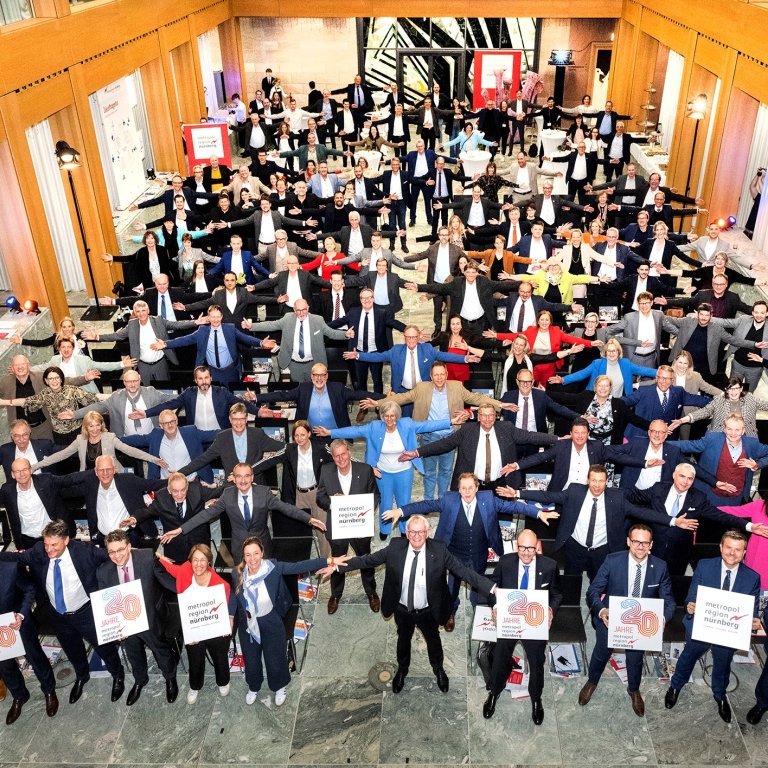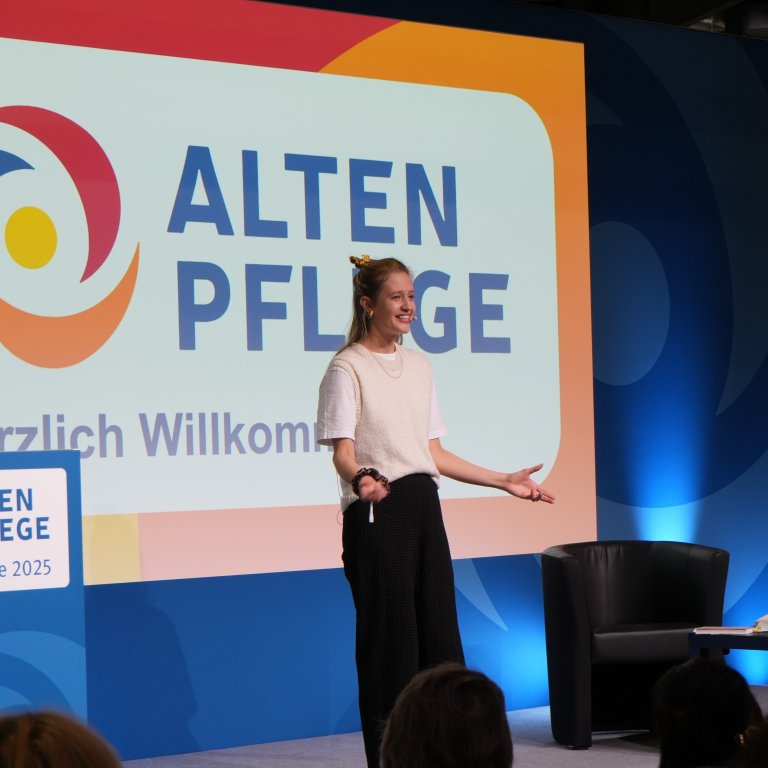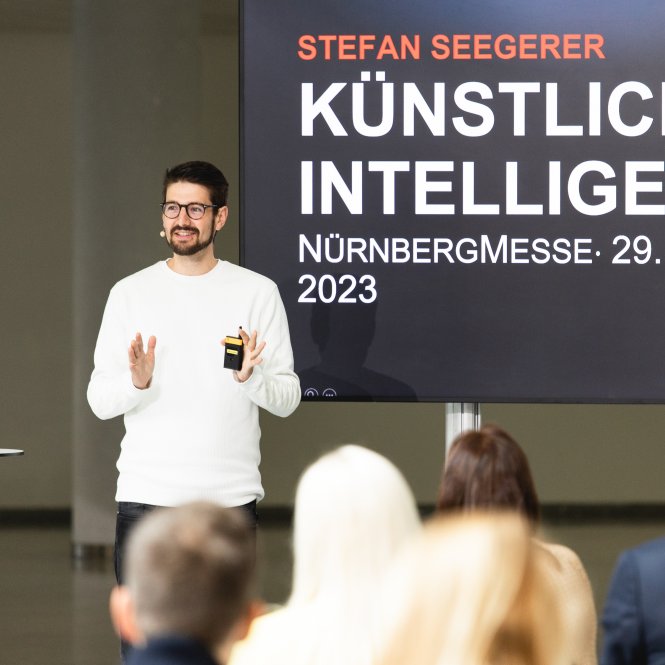

AI expert Stefan Seegerer gave interesting insights into the current state of development at the first "NM Future Lab". With colleagues from NürnbergMesse, he discussed how the trade fair company can prepare for the use of AI.
The trade fair is "people's business". What contribution can artificial intelligence make? At the first "NM Future Lab", colleagues from NürnbergMesse discussed this question with AI expert Stefan Seegerer. The computer scientist sees his work at the interface between humans and computers: as a computer scientist he is fascinated by technological developments. In his role as "Education Lead" at the quantum computer manufacturer IQM, he explains to people how quantum computers learn, among other things. He has received awards for his contributions to computer science education.
Stefan, the Federal Minister of Labour assumes that by 2025 there won't be a job that doesn't use artificial intelligence. How do you see that?
It's hard to predict what technology will look like in ten or twenty years. But we can already see today that AI plays a big role in many computer jobs - without us noticing it as such. In my lectures and workshops, I like to bring up examples like spam filters, optical character recognition (OCR) or even the navigation device in the car. While these used to be considered AI applications, hardly anyone perceives them as such today.
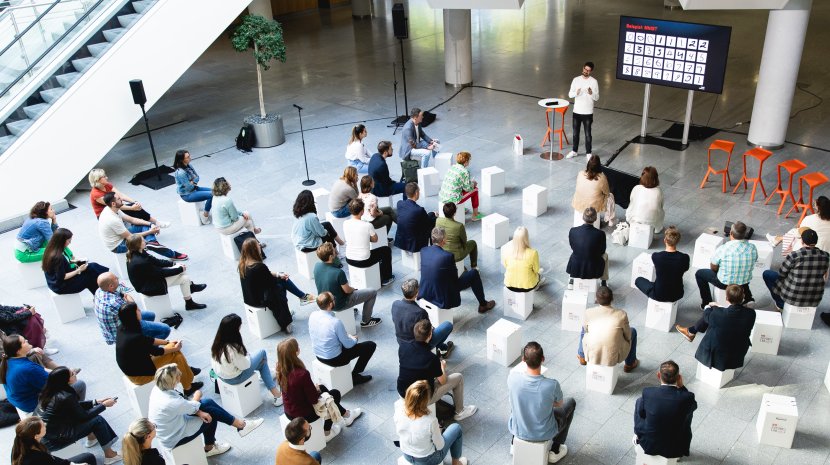
Employees of NürnbergMesse were able to participate in the first "NM Future Lab" on site and digitally.
In your job, you impart knowledge about AI, computer science and quantum computing. You give workshops and are also involved in school education. What core messages do you want to convey?
Whether in my workshops, in the computer science textbook or at the lecture at NürnbergMesse, I want to give people a basic understanding of how AI works. It's not so much about applying concrete models like in Chat GPT or Midjourney - these are constantly changing anyway. I want to explain to people how a machine learns. There are different models for this - supervised, unsupervised or reinforcing. These basic ideas have hardly changed for 70 years. Neural networks have also been around for a long time. If you understand these ideas, you can also enter into a meaningful discussion about the social dimension of AI.
Will artificial intelligence endanger jobs?
I hardly see these fears. A few, very specific job profiles could be replaced by AI in the future. But I see that as the exception rather than the rule. Most of our jobs have broad fields of activity. Especially in typical desk jobs, AI has enormous potential to relieve us of work - writing minutes or searching for files are classic examples. In the future, AI will be able to take over tasks that we perceive as repetitive or strenuous and thus assist us. But AI can also support us in creative tasks such as brainstorming. In this way, we can focus on the core of our work and be more productive.
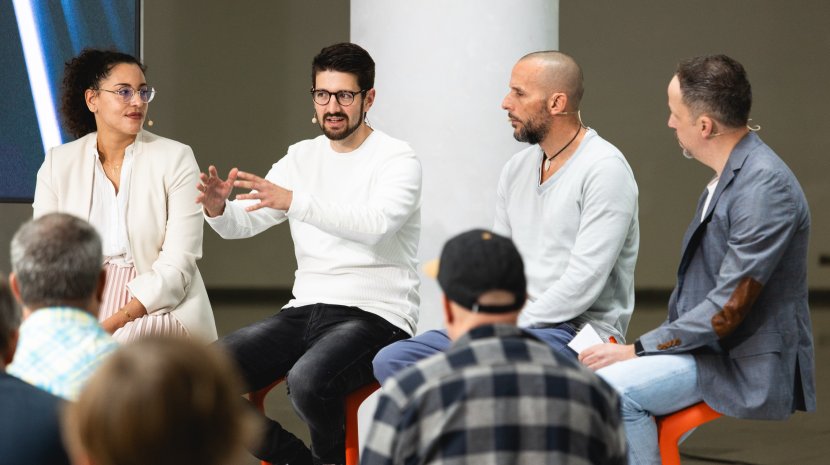
At the "NM Future Lab", Stefan Seegerer discussed opportunities for AI with employees of NürnbergMesse.
What will the future bring? Where will AI be in the world of work?
We will perceive AI less as such, it will become normal for us and appear less magical than it does today. We have reached a point where we can see where the development is going in many areas.
The outlook is less clear for the areas of physical work, such as care or agriculture, where robots could be used. The need is definitely there in these areas, because the workforce is not getting any larger. For example, Japan has embedded AI in its strategy for the care sector. Here, too, robots could take over simpler tasks from humans, so that the nurse could focus on social interaction with the patient. Medical consultations could also be supported by AI, for example, by requesting initial information and forwarding patients to a central control centre to relieve the system.
How do people react to AI in your workshops?
I feel that the understanding of AI and the awareness of its potential is increasing. Five years ago, people were still discussing individual models with a small scope of application. Today, the view is broader and opportunities are recognised in the combination of different applications. I believe that I also perceive a stronger enthusiasm and scepticism towards AI is decreasing.

